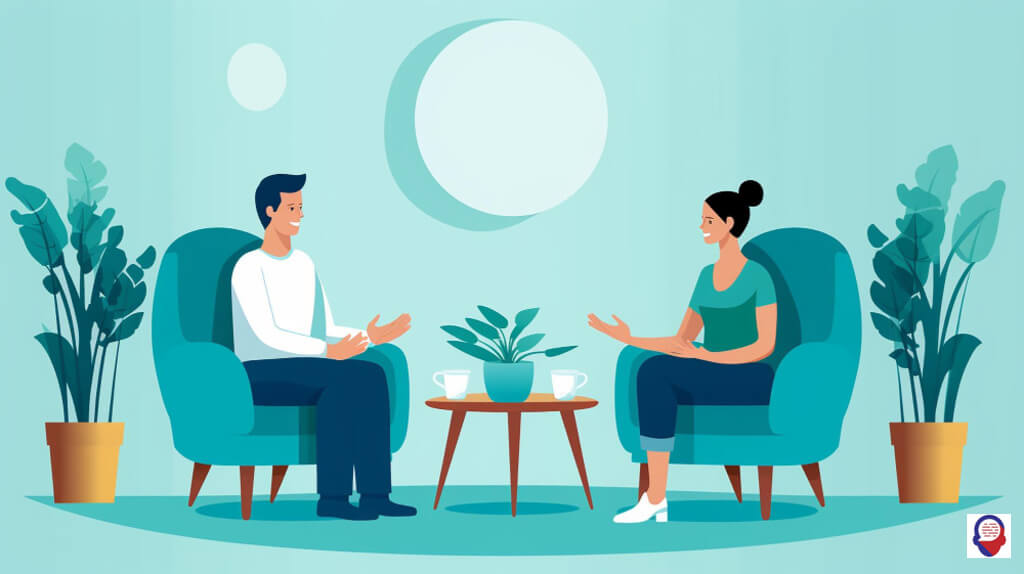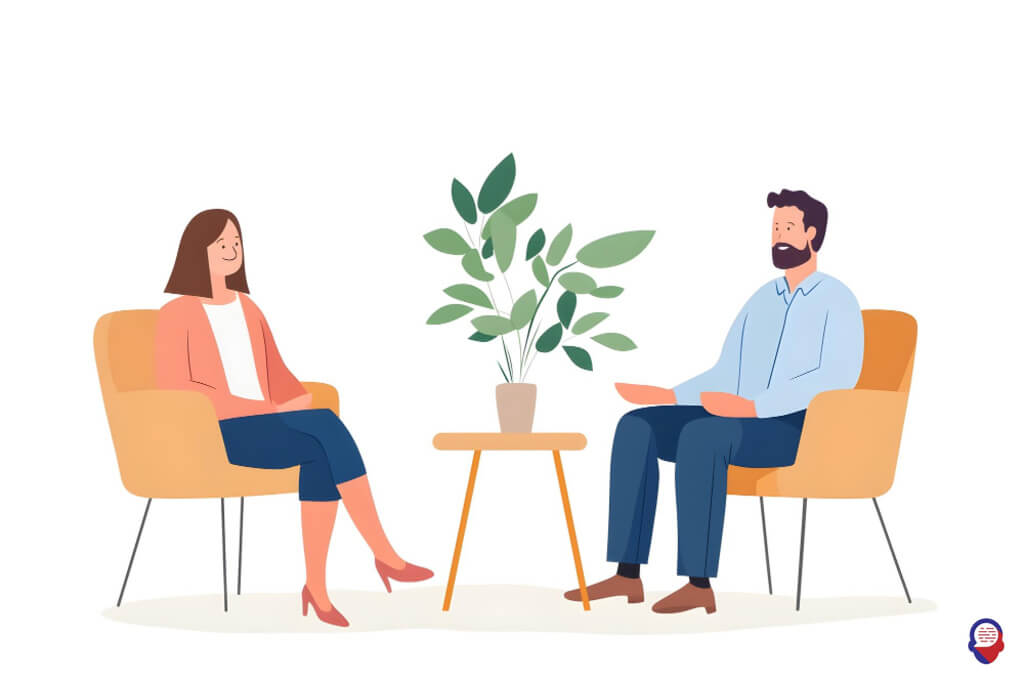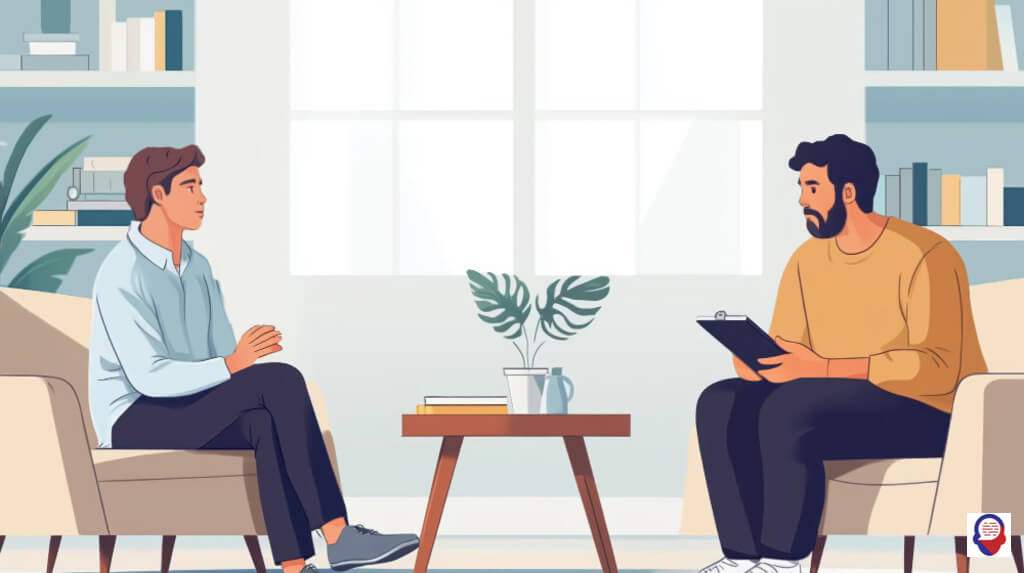Could a Relationship Therapist Help Your Partnership Thrive?
Every relationship, no matter how strong, faces challenges. It’s a fundamental truth of sharing a life with another person. Sometimes these challenges feel like small hurdles, easily cleared, while other times they loom like insurmountable mountains, casting a long shadow over everything you’ve built together. In these moments, it’s easy to feel lost, isolated, or even hopeless. But what if there was a map, a guide to help you navigate that difficult terrain?
This is where a relationship therapist comes in. Far from being a last resort for couples on the brink of collapse, relationship therapy is a powerful, proactive tool for strengthening your bond, improving communication, and rediscovering the connection that brought you together in the first place. It’s a dedicated space to understand not just your partner, but yourself, and the unique dynamic you create together. This guide will explore everything you need to know about seeking support from a relationship therapist.

What Exactly Is a Relationship Therapist?
A relationship therapist is a highly trained mental health professional who specialises in helping couples and individuals navigate the complexities of their intimate relationships. They are skilled facilitators, mediators, and educators who provide a safe, neutral environment for partners to explore their issues. Their primary focus isn’t on one individual’s problems, but on the relationship itself, treating the partnership as the client.
These therapists have specialised training in family systems and relationship dynamics. They understand the intricate patterns of communication, conflict, and connection that define a partnership. Their goal is not to assign blame or take sides, but to help you both understand the underlying causes of your distress and equip you with the tools to build a healthier, more fulfilling future together.

When Should You Consider Seeing a Relationship Therapist?
You should consider seeing a relationship therapist whenever you feel stuck in a negative pattern or face a challenge that seems too big to solve on your own. This could be a recurring argument that never gets resolved, a growing emotional distance, or the aftermath of a significant life event that has shaken your foundation. Therapy is not just for crises, it is for any couple wanting to invest in the health and longevity of their bond.
Many couples wait until their problems have become deeply entrenched, making the work of repair much harder. Seeking help early can prevent minor issues from escalating into major crises. Think of it like a regular health check, a preventative measure to keep your relationship strong and resilient against the inevitable stresses of life.

Is it only for couples on the brink of breaking up?
Absolutely not, this is one of the biggest misconceptions about relationship therapy. While it is an invaluable resource for couples in crisis, its benefits extend far beyond saving a relationship from the edge. Many couples use therapy as a form of enrichment, a way to turn a good relationship into a great one.
Pre-marital counselling, for example, helps couples build a strong foundation by discussing expectations, values, and potential future conflicts before they even arise. Couples also seek therapy to navigate major life transitions, such as becoming parents, changing careers, dealing with an empty nest, or blending families. It’s about being proactive, not just reactive.

What if communication has completely broken down?
You should seek therapy when conversations consistently devolve into arguments, or worse, into stony silence. If you find yourselves having the same fight over and over with no resolution, or if one or both of you have started avoiding difficult topics altogether, a therapist can provide essential support. This breakdown is a clear sign that your current communication strategies are no longer working.
A therapist acts as a neutral third party, a translator who can help you hear what your partner is truly trying to say underneath the anger or defensiveness. They can slow down the conversation, de-escalate conflict, and teach you new, more effective ways to express your needs and listen to your partner’s. They help you break the toxic cycle of blame and withdrawal, creating a space for genuine understanding.

Can therapy help with infidelity or broken trust?
Yes, therapy can be an essential lifeline for couples navigating the profound pain of infidelity or other forms of broken trust. Betrayal shatters the very foundation of a relationship, leaving behind a complex mess of anger, grief, guilt, and fear. Trying to navigate this alone can often lead to more hurt and misunderstanding.
A relationship therapist provides a structured and safe environment to process these overwhelming emotions. They guide couples through the difficult process of understanding why the affair happened, taking responsibility, and, if both partners are willing, beginning the long journey of rebuilding trust. It is a delicate process that requires expert guidance to manage the emotional intensity and create a path toward healing and potential reconciliation.

What about disagreements over major life decisions?
Disagreements over major life decisions are a common reason for couples to seek therapy. Issues surrounding finances, career paths, parenting styles, or where to live can create significant friction because they touch upon our deepest values and life goals. When you and your partner are on completely different pages, it can feel like you’re moving in opposite directions.
A therapist can help you explore the underlying needs and fears driving each of your positions. They facilitate a conversation that moves beyond a simple power struggle of who is right and who is wrong. The goal is to find a way to honour both partners’ perspectives and work collaboratively towards a compromise or a solution that both can live with, strengthening your ability to function as a team.

What Happens During a Relationship Therapy Session?
In a typical first session, the therapist will focus on getting to know you both and understanding the issues that brought you to therapy. They will likely ask about the history of your relationship, the nature of your current challenges, and what each of you hopes to achieve through the process. This initial meeting is about establishing a safe, non-judgmental space and building a therapeutic alliance.
The therapist will explain their approach, confidentiality, and the general structure of the sessions. It is also an opportunity for you to ask questions and decide if the therapist is a good fit for you. The primary goal is to create a clear picture of your relationship dynamic and collaboratively set some initial goals for your work together.

Will the therapist take sides?
A skilled and ethical relationship therapist will never take sides. Their client is the relationship itself, not one individual over the other. Their role is to remain neutral and objective, helping both partners see their own contribution to the dynamic, both positive and negative.
If you ever feel that a therapist is consistently blaming one partner or favouring the other, it is a significant red flag. The therapist’s job is to create balance in the room, ensuring both voices are heard, validated, and understood. They work for the "we," not for the "you" or the "me."

What kind of techniques do therapists use?
Relationship therapists draw from several evidence-based models to help couples. While you don’t need to be an expert, understanding the basics can be helpful. The therapist will use techniques designed to interrupt negative cycles and build positive ones.
One popular approach is the Gottman Method, which is based on decades of research and focuses on building friendship, managing conflict constructively, and creating shared meaning. Another is Emotionally Focused Therapy (EFT), which helps couples identify and express their underlying emotional needs and fears, fostering a more secure attachment bond. Other approaches, like Imago Relationship Therapy, may explore how childhood experiences impact your current relationship dynamics.

Do we get homework?
Yes, it is very common for relationship therapists to assign "homework" or tasks to complete between sessions. Therapy is not just what happens for one hour a week in the office, the real change happens when you apply what you’ve learned to your daily life. This is where new habits are formed and new skills are solidified.
These assignments are not like schoolwork, they are practical exercises designed to help you practice new ways of communicating or connecting. This might include setting aside dedicated time to talk without distractions, using a specific communication technique during a disagreement, or planning a shared activity to rebuild fondness and admiration. Completing these tasks is crucial for making lasting progress.

How Can You Find the Right Relationship Therapist?
Finding the right therapist involves looking for appropriate qualifications, experience, and, crucially, a good personal fit. A great starting point is to look for professionals who are registered with reputable professional bodies, as this ensures they meet specific standards of training and ethical conduct. You want someone who has specialised training in couples or family therapy, not just a general counsellor who occasionally sees couples.
Ask about their experience with the specific issues you are facing, whether it’s communication, infidelity, or something else. Word of mouth from trusted friends or a referral from your GP can also be valuable sources. The key is to do a bit of research to ensure you are placing your trust in a qualified professional.

What qualifications should I look for?
In the United Kingdom, you should look for a therapist who is accredited by a major professional body like the British Association for Counselling and Psychotherapy (BACP), the UK Council for Psychotherapy (UKCP), or the College of Sexual and Relationship Therapists (COSRT). These organisations have rigorous training and ethical standards.
Look for terms like "couples counsellor," "relationship therapist," or "psychosexual therapist" in their credentials. Many will also list the specific therapeutic models they are trained in, such as EFT or the Gottman Method. Don’t be afraid to ask a potential therapist directly about their qualifications and their specific experience working with couples.

Is the therapist’s personality important?
Yes, the personality of the therapist and your "fit" with them is incredibly important, perhaps just as important as their qualifications. You are going to be discussing deeply personal and vulnerable topics, so it is essential that both you and your partner feel safe, respected, and comfortable with the therapist. You need to trust them to guide you through difficult conversations.
Most therapists offer a brief initial consultation, often by phone or video call, which is a perfect opportunity to gauge this fit. Do you feel heard? Does their communication style resonate with you? Trust your gut feeling, if something feels off for either you or your partner, it is perfectly acceptable to keep looking for someone you both connect with.

What if my partner refuses to go?
This is a very common and difficult situation. You cannot force your partner to attend therapy, and trying to do so will likely only create more conflict. However, this does not mean that hope is lost. You can still make a significant difference by attending therapy on your own.
By going to therapy alone, you can gain insight into your own role in the relationship patterns and learn new strategies for communicating and managing conflict. As you begin to change your behaviour, the dynamic of the relationship will inevitably shift. Sometimes, seeing the positive changes in you can inspire a reluctant partner to become curious and more open to joining you in a session.

How Can You Make the Most of Your Therapy Experience?
To make the most of therapy, you must be an active participant in your own healing. The process requires more than just showing up to appointments, it demands commitment, honesty, and a genuine desire to change from both partners. Success in therapy is directly correlated with the effort you put in, both inside and outside the session room.
View therapy as a collaborative process with your therapist and your partner. Be prepared to be challenged, to look at your own behaviour, and to step outside of your comfort zone. The more you invest in the process, the more you will get out of it.

What mindset should we bring to sessions?
The ideal mindset to bring to therapy is one of openness, curiosity, and vulnerability. Be prepared to be completely honest, both with your therapist and your partner, even when it feels difficult or uncomfortable. Hiding information or pretending things are better than they are will only hinder the process.
Try to let go of the need to be "right" and instead adopt a curiosity about your partner’s perspective and your own underlying feelings. Be willing to be vulnerable and share the fears and needs that are often hidden beneath anger and defensiveness. This vulnerability is the gateway to deeper connection and understanding.

How can we implement what we learn?
You can implement what you learn by consistently practicing the skills and completing the exercises your therapist suggests. Change doesn’t happen by magic, it happens through repetition. Make your "homework" a priority, just as you would any other important commitment.
Talk with your partner about how you can support each other in using these new tools. Acknowledge when you successfully use a new communication technique and be patient with each other when you slip back into old habits. The key is to create a shared commitment to integrating these new, healthier patterns into the fabric of your everyday life.
Frequently Asked Questions

How long does relationship therapy usually take?
The duration of relationship therapy varies greatly depending on the couple’s specific goals and the complexity of their issues. Some couples may find that a few solution-focused sessions are enough to get them back on track, often within two to three months. For others with more deep-seated issues or significant trauma like infidelity, the process may take six months, a year, or even longer. Your therapist will discuss a potential timeline with you after the initial assessment.

Is relationship therapy confidential?
Yes, relationship therapy is confidential. Your therapist is bound by a strict code of professional ethics that requires them to protect your privacy. What you discuss in the session stays in the session. The only exceptions to this rule are legal and ethical obligations to break confidentiality if there is a risk of serious harm to yourself, to others, or in cases of child protection concerns.

What is the success rate of relationship therapy?
The success rate for relationship therapy is generally very high, particularly when both partners are motivated and committed to the process. For example, research on Emotionally Focused Therapy (EFT) shows that over 70 percent of couples move from distress to recovery and approximately 90 percent show significant improvements. Success, however, is defined by the couple, it might mean reconciliation, or it might mean separating amicably with mutual respect.

Can we use therapy for non-romantic relationships?
Yes, the principles of relationship therapy can be applied to many different types of relationships. Family therapy, for instance, addresses dynamics between parents and children, siblings, or extended family members. The skills of communication, conflict resolution, and understanding different perspectives are universal and can also be beneficial for business partners or close friends who are experiencing conflict.

At Counselling-uk, we understand that every relationship has its own unique story and its own set of challenges. We believe that seeking help is a sign of strength and a courageous investment in your future happiness. Our mission is to provide a safe, confidential, and professional place where you can find the support you need for all of life’s challenges. If you are ready to strengthen your connection and navigate your difficulties with expert guidance, we are here to help you take that first important step.




How often do we need to come for therapy? – This is an important question for understanding the commitment needed for successful therapy. It will also give you an idea of how long it may take for things to change in your relationship.
• Consider the cost of therapy sessions. Different therapists have different rates so shop around to find one that fits within your budget.